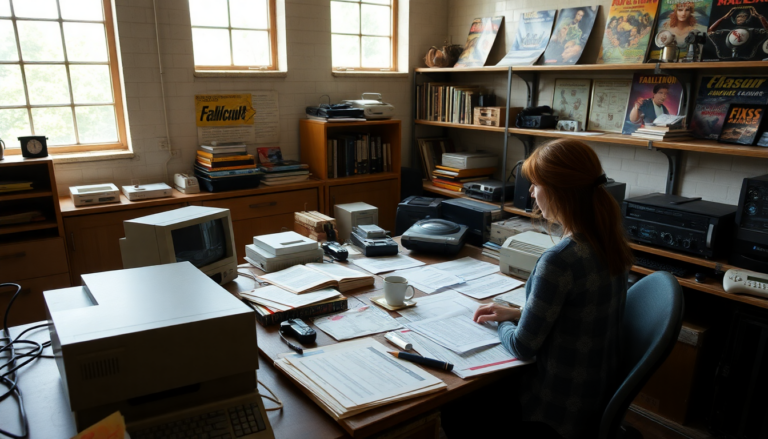Argomenti trattati
Rebecca Heineman: The guardian of Fallout’s source code
In the gaming industry, few stories are as compelling as that of Rebecca Heineman, a co-founder of Interplay Entertainment. Known for her pivotal role in the creation and development of iconic titles, Heineman’s commitment to preserving the original Fallout games sets her apart. When Tim Cain, the lead developer of Fallout, lamented the loss of early development materials, Heineman emerged as a beacon of hope. She had the foresight to keep copies of the source code for Fallout 1 and 2, ensuring that these classic games would not be lost to time.
The importance of archival in gaming
The preservation of video game history is crucial for future generations of gamers and developers. When Heineman left Interplay, she took it upon herself to safeguard the source code of every game she worked on. This proactive approach contrasts sharply with the typical practices of the time, where backups were often neglected. Heineman’s dedication to archival practices not only protected her work but also highlighted the need for a systematic approach to preserving gaming history.
Uncovering the forgotten source code
Heineman’s journey began in 1993 when she compiled a CD anthology of games published by Interplay over the previous decade. While gathering the source code for titles like Battle Chess and Bard’s Tale, she discovered a glaring lack of organizational effort in preserving these materials. As she recounted, asking for Wasteland’s source code resulted in confusion and a disheveled cardboard box containing some floppies. This experience galvanized her commitment to keeping meticulous records of her work.
A quest for preservation
Determined to prevent the loss of valuable gaming history, Heineman made it her mission to take snapshots of the code for every game she contributed to. Her meticulous approach extended beyond her time at Interplay to her work with MacPlay, where she continued to preserve the source code of each title. As she stated, “I made it a quest to snapshot everything and archive it on CD-ROMs.” This dedication ensured that she left Interplay in 1995 with a complete archive of the games she had worked on, including both Fallout titles.
Open sourcing and future possibilities
Heineman’s commitment to preservation didn’t stop with her personal archives. She previously made the source code for the 3DO version of Doom available on GitHub, demonstrating her belief in sharing knowledge within the gaming community. However, when it comes to Fallout, she acknowledged that obtaining permission from Bethesda is necessary before releasing the source code. As Bethesda continues to engage positively with the community, especially through recent remastering projects, the potential for a similar goodwill gesture toward Fallout’s preservation remains hopeful.
The significance of preserving Fallout
The Fallout franchise is a cornerstone of modern role-playing games, and its influence on the genre cannot be overstated. By maintaining the source code, Heineman not only protects the legacy of these games but also opens the door for future developers to study and learn from them. The potential for modding, remastering, or even remaking these classics hinges on the availability of their original source materials.
Community engagement and support
As the gaming community rallies around preservation efforts, the hope is that companies like Bethesda will recognize the value in supporting these initiatives. With the success of titles like Oblivion Remastered and collaborations with modders, there’s an opportunity for Bethesda to take a proactive stance in preserving the Fallout legacy. The dedication of individuals like Heineman serves as a reminder of the importance of archival efforts in ensuring that gaming history is not only remembered but accessible for future generations.
Final thoughts on gaming preservation
The journey of Rebecca Heineman illustrates the crucial role of individuals in preserving the rich history of gaming. As technology evolves and new generations of gamers emerge, the importance of preserving the stories and experiences of the past becomes ever more significant. With advocates like Heineman leading the charge, the hope remains that the legacy of Fallout and other iconic titles will endure for years to come.

